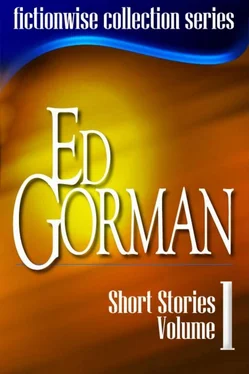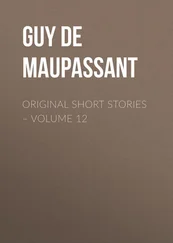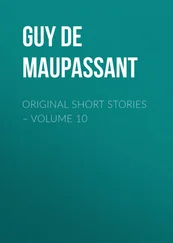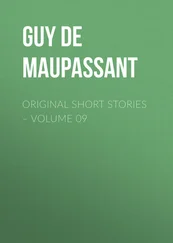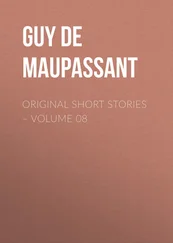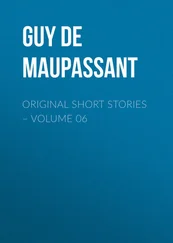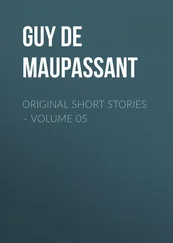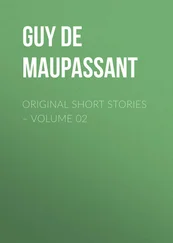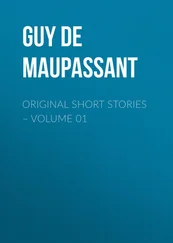Ed Gorman - Short Stories, Volume 1
Здесь есть возможность читать онлайн «Ed Gorman - Short Stories, Volume 1» весь текст электронной книги совершенно бесплатно (целиком полную версию без сокращений). В некоторых случаях можно слушать аудио, скачать через торрент в формате fb2 и присутствует краткое содержание. Год выпуска: 2003, ISBN: 2003, Издательство: Fictionwise.com, Жанр: Детектив, на английском языке. Описание произведения, (предисловие) а так же отзывы посетителей доступны на портале библиотеки ЛибКат.
- Название:Short Stories, Volume 1
- Автор:
- Издательство:Fictionwise.com
- Жанр:
- Год:2003
- ISBN:978-1-59062-568-2
- Рейтинг книги:4 / 5. Голосов: 1
-
Избранное:Добавить в избранное
- Отзывы:
-
Ваша оценка:
- 80
- 1
- 2
- 3
- 4
- 5
Short Stories, Volume 1: краткое содержание, описание и аннотация
Предлагаем к чтению аннотацию, описание, краткое содержание или предисловие (зависит от того, что написал сам автор книги «Short Stories, Volume 1»). Если вы не нашли необходимую информацию о книге — напишите в комментариях, мы постараемся отыскать её.
contains Fictionwise.com members favorites “En Famille” and “Favor and the Princess” and more excellent short mysteries.
Short Stories, Volume 1 — читать онлайн бесплатно полную книгу (весь текст) целиком
Ниже представлен текст книги, разбитый по страницам. Система сохранения места последней прочитанной страницы, позволяет с удобством читать онлайн бесплатно книгу «Short Stories, Volume 1», без необходимости каждый раз заново искать на чём Вы остановились. Поставьте закладку, и сможете в любой момент перейти на страницу, на которой закончили чтение.
Интервал:
Закладка:
Four months after the doctor’s diagnosis, the nuns put me in bed and I knew I’d never walk on my own again. I thought of Donna, and her death, and how I’d made it all the worse with the track and Wendy.
The weaker I got, the more I thought about Rob. I talked about him to the nuns. And then one day he was there.
He wasn’t alone, either. With him was a very pretty dark-haired woman and a seven-year-old boy who got the best features of both his mother and father.
“Dad, this is Mae and Stephen.”
“Hello, Mae and Stephen. I’m very glad to meet you. I wish I was better company.”
“Don’t worry about that,” Mae said. “We’re just happy to meet you.”
“I need to go to the bathroom,” Stephen said.
“Why don’t I take him, and give you a few minutes alone with your dad?” Mae said.
And so, after all these years, we were alone and he said, “I still can’t forgive you, Dad.”
“I don’t blame you.”
“I want to. But somehow I can’t.”
I took his hand. “I’m just glad you turned out so well, son. Like your mother and not your father.”
“I loved her very much.”
“I know you did.”
“And you treated her very, very badly.”
All his anger. All these years.
“That’s a beautiful wife and son you’ve got.”
“They’re my whole life, everything that matters to me.”
I started crying; I couldn’t help it. Here at the end I was glad to know he’d done well for himself and his family.
“I love you, Rob.”
“I love you, too, Dad.”
And then he leaned down and kissed me on the cheek and I started crying harder and embarrassed both of us.
Mae and Stephen came back.
“My turn,” Rob said. He patted me on the shoulder. “I’ll be back soon.”
I think he wanted to cry but wanted to go somewhere alone to do it.
“So,” Mae said, “are you comfortable?”
“Oh, very.”
“This seems like a nice place.”
“It is.”
“And the nuns seem very nice, too.”
“Very nice.” I smiled. “I’m just so glad I got to see you two.”
“Same here. I’ve wanted to meet you for years.”
“Well,” I said, smiling. “I’m glad the time finally came.”
Stephen, proper in his white shirt and blue trousers and neatly combed dark hair, said, “I just wish you could go to the track with us sometime, Grandpa.”
She didn’t have to say anything. I saw it all in the quick certain pain that appeared in her lovely gray eyes.
“The race track, you mean?” I said.
“Uh-huh. Dad takes me all the time, doesn’t he, Mom?”
“Oh, yes,” she said, her voice toneless. “All the time.”
She started to say more but then the door opened up and Rob came in and there was no time to talk.
There was no time at all.
The Reason Why
“I’m scared.”
“This was your idea, Karen.”
“You scared?”
“No.”
“You bastard.”
“Because I’m not scared I’m a bastard?”
“You not being scared means you don’t believe me.”
“Well.”
“See. I knew it.”
“What?”
“Just the way you said ‘Well.’ You bastard.”
I sighed and looked out at the big redbrick building that sprawled over a quarter mile of spring grass turned silver by a fat June moon. Twenty-five years ago a 1950 Ford fastback had sat in the adjacent parking lot. Mine for two summers of grocery store work.
We were sitting in her car, a Volvo she’d cadged from her last marriage settlement, number four if you’re interested, and sharing a pint of bourbon the way we used to in high school when we’d been more than friends but never quite lovers.
The occasion tonight was our twenty-fifth class reunion. But there was another occasion, too. In our senior year a boy named Michael Brandon had jumped off a steep clay cliff called Pierce Point to his death on the winding river road below. Suicide. That, anyway, had been the official version.
A month ago Karen Lane (she had gone back to her maiden name these days, the Karen Lane-Cummings-Todd-Brown-LeMay getting a tad too long) had called to see if I wanted to go to dinner and I said yes, if I could bring Donna along, but then Donna surprised me by saying she didn’t care to go along, that by now we should be at a point in our relationship where we trusted each other (“God, Dwyer, I don’t even look at other men, not for very long anyway, you know?”), and Karen and I had had dinner and she’d had many drinks, enough that I saw she had a problem, and then she’d told me about something that had troubled her for a long time....
In senior year she’d gone to a party and gotten sick on wine and stumbled out to somebody’s backyard to throw up and it was there she’d overheard the three boys talking. They were earnestly discussing what happened to Michael Brandon the previous week and they were even more earnestly discussing what would happen to them if “anybody ever really found out the truth.”
“It’s bothered me all these years,” she’d said over dinner a month earlier. “They murdered him and they got away with it.”
“Why didn’t you tell the police?”
“I didn’t think they’d believe me.”
“Why not?”
She shrugged and put her lovely little face down, dark hair covering her features. Whenever she put her face down that way it meant that she didn’t want to tell you a lie so she’d just as soon talk about something else.
“Why not, Karen?”
“Because of where we came from. The Highlands.”
The Highlands is an area that used to ring the iron foundries and factories of this city. Way before pollution became a fashionable concern, you could stand on your front porch and see a peculiarly beautiful orange haze on the sky every dusk. The Highlands had bars where men lost ears, eyes, and fingers in just garden-variety fights, and streets where nobody sane ever walked after dark, not even cops unless they were in pairs. But it wasn’t the physical violence you remembered so much as the emotional violence of poverty. You get tired of hearing your mother scream because there isn’t enough money for food and hearing your father scream back because there’s nothing he can do about it. Nothing.
Karen Lane and I had come from the Highlands, but we were smarter and, in her case, better looking than most of the people from the area, so when we went to Wilson High School — one of those nightmare conglomerates that shoves the poorest kids in a city in with the richest — we didn’t do badly for ourselves. By senior year we found ourselves hanging out with the sons and daughters of bankers and doctors and city officials and lawyers and riding around in new Impala convertibles and attending an occasional party where you saw an actual maid. But wherever we went, we’d manage for at least a few minutes to get away from our dates and talk to each other. What we were doing, of course, was trying to comfort ourselves. We shared terrible and confusing feelings — pride that we were acceptable to those we saw as glamorous, shame that we felt disgrace for being from the Highlands and having fathers who worked in factories and mothers who went to Mass as often as nuns and brothers and sisters who were doomed to punching the clock and yelling at ragged kids in the cold factory dusk. (You never realize what a toll such shame takes till you see your father’s waxen face there in the years-later casket.)
That was the big secret we shared, of course, Karen and I, that we were going to get out, leave the place once and for all. And her brown eyes never sparkled more Christmas-morning bright than at those moments when it all was ahead of us, money, sex, endless thrills, immortality. She had the kind of clean good looks brought out best by a blue cardigan with a line of white button-down shirt at the top and a brown suede car coat over her slender shoulders and moderately tight jeans displaying her quietly artful ass. Nothing splashy about her. She had the sort of face that snuck up on you. You had the impression you were talking to a pretty but in no way spectacular girl, and then all of a sudden you saw how the eyes burned with sad humor and how wry the mouth got at certain times and how the freckles enhanced rather than detracted from her beauty and by then of course you were hopelessly entangled. Hopelessly.
Читать дальшеИнтервал:
Закладка:
Похожие книги на «Short Stories, Volume 1»
Представляем Вашему вниманию похожие книги на «Short Stories, Volume 1» списком для выбора. Мы отобрали схожую по названию и смыслу литературу в надежде предоставить читателям больше вариантов отыскать новые, интересные, ещё непрочитанные произведения.
Обсуждение, отзывы о книге «Short Stories, Volume 1» и просто собственные мнения читателей. Оставьте ваши комментарии, напишите, что Вы думаете о произведении, его смысле или главных героях. Укажите что конкретно понравилось, а что нет, и почему Вы так считаете.
